

Kosovo in Switzerland, Switzerland in Kosovo
The two small mountainous countries in Europe have a dense network of relationships: political, economic, historical, but above all human, through the many personal connections.
Around 250,000 people belong to the Kosovan diaspora in Switzerland. That is significantly fewer people than there are Italians living in Switzerland, for example. And yet it is a large number.
After all, Kosovo, the small mountainous country in south-east Europe, has only 1.8 million inhabitants.

More
How Swiss parties court the Kosovar diaspora
Kosovo Albanians have been coming to Switzerland, the small mountainous country in Central Europe, as seasonal workers since the 1960s, when Kosovo was still one of the poorest regions of communist Yugoslavia.
The Swiss work permits in the seasonal worker statute were not intended to create permanent connections, but despite the authorities’ will, these have developed.

More
Kosovo and Switzerland: an intense relationship
As the Yugoslav authorities’ repression of Kosovars increased from 1981 onwards, more and more political refugees from Kosovo found their way to Switzerland. As early as 1981, there was a demonstration in Zurich in favour of an independent Kosovo.
Newspapers in exile in Switzerland
When Serbian policy in Yugoslavia forced Kosovars out of many jobs and education from 1989 onwards, Switzerland became a place of exile, and many Kosovar newspapers were based in the Alpine country.
The already existing Kosovar Albanian community in Switzerland and the many connections ensured that tens of thousands of people from Kosovo fled to Switzerland during the 1998/1999 war.
There were 43,000 applications for asylum during the years of the Kosovo war – in relation to the small size of Switzerland, no other Western European country received as many people from Kosovo.
In order to be able to act more quickly in a situation like this, the Swiss authorities introduced protection status S in response to the Balkan wars.
This was used for the first time over 20 years later, when tens of thousands of Ukrainians quickly sought regular residence in Switzerland in 2022.
In an interview with SWI swissinfo.ch, Swiss Kosovar Arta Krasniqi, whose family had come to Switzerland four years before the Kosovo war, recalls that more Kosovars were arriving at school every week.
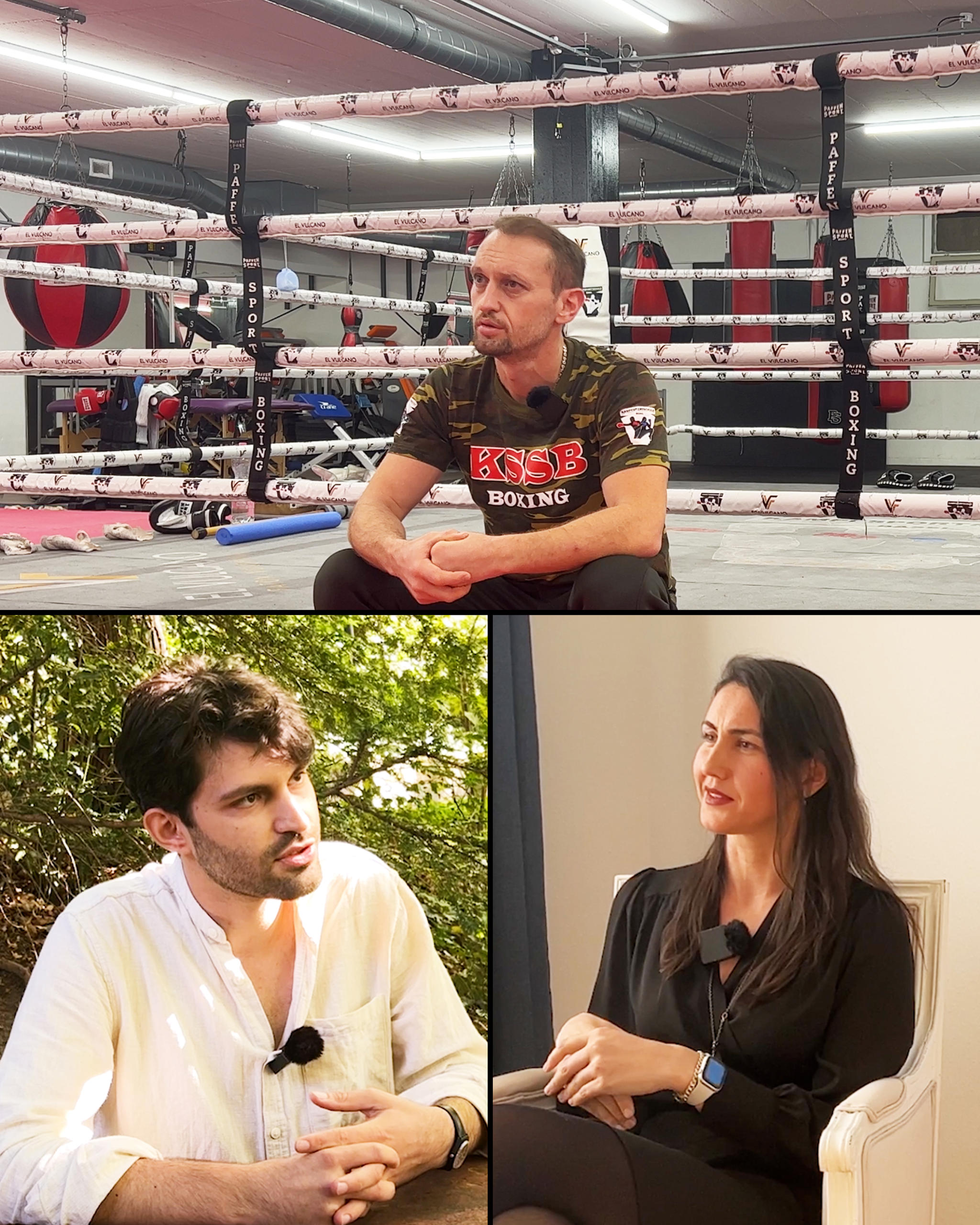
More
‘The Swiss have become more open'(video)
With the growing visibility of the Albanian community, racist stereotypes also increased at the time.
Many of the dissidents who fled to Switzerland before the war were pacifists. But the UÇK, the “Kosovo Liberation Army”, also cultivated its links to Switzerland.
The UÇK leader Hashim Thaçi, who later became the first president of Kosovo, lived in Switzerland and was recognised as a political refugee in 1995.
Thaçi is currently on trial before the Kosovo Special Tribunal in The Hague. He is accused of war crimes and crimes against humanity.
Kosovo as an independent state
To date, around 115 countries recognise Kosovo as an independent state. Western recognition of Kosovo is repeatedly used by Russia as a justification for the annexation of Crimea and similar cases.
Swiss historian Oliver Jens Schmitt explains in an interview why this comparison is not valid: “Serbia has committed the most serious human rights crimes, with Serbian actors systematically murdering, using sexual violence against the population, destroying 40,000 houses and a large part of the cultural heritage. A government that takes such action against its own people forfeits the right to rule over them.”
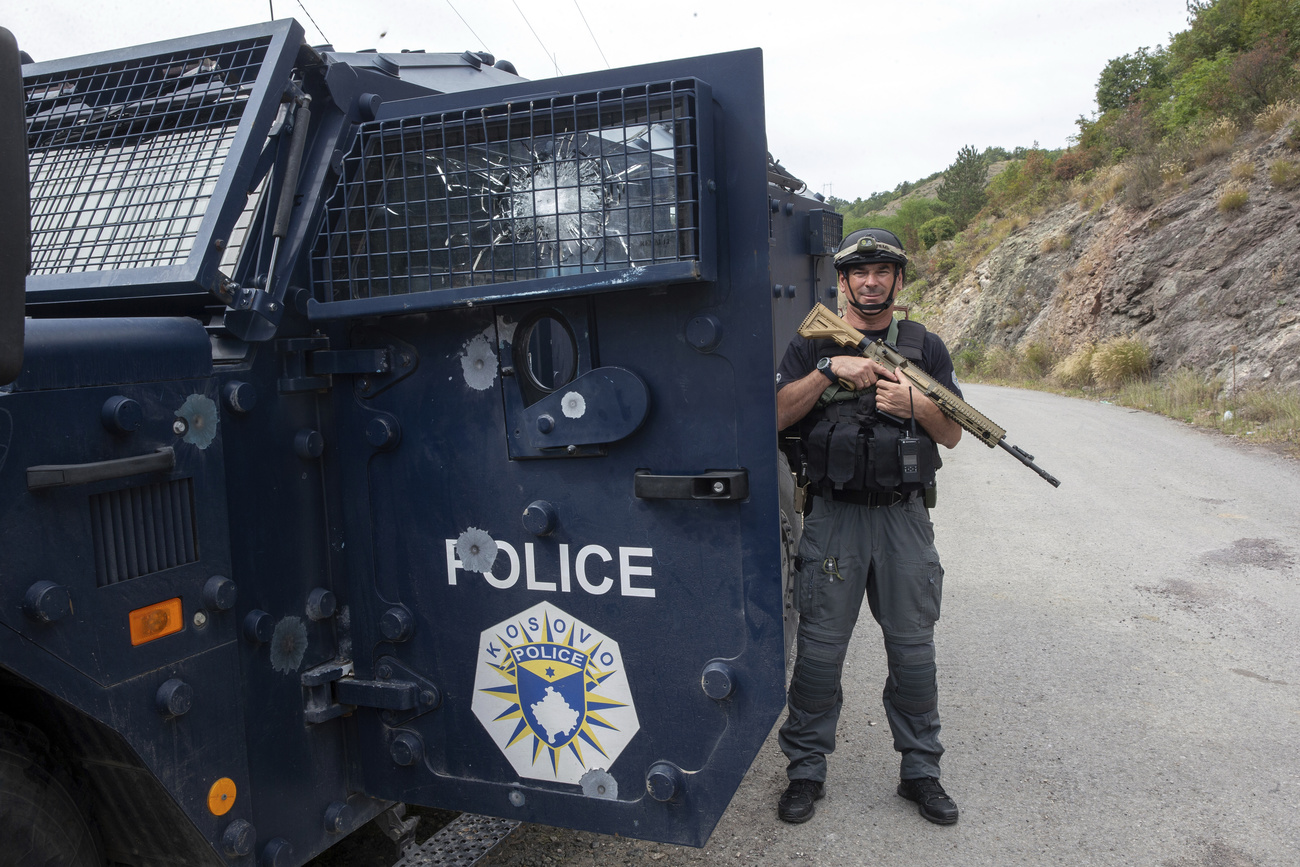
More
‘Swiss diplomacy in Kosovo is not very visible’
Relations with Serbia have reached a low point again since the attack by 30 gunmen in the monastery village of Banjska on September 24.
Peace research and the Swisscoy mission
Swiss peace researcher Dana Landau told SWI swissinfo.ch how important it is now for dialogue to begin again.
Peacebuilding on the ground is also the responsibility of KFOR. This also includes the Swisscoy mission. As Switzerland’s largest military deployment abroad, it is still the subject of heated debate in Switzerland today regarding the interpretation of neutrality.
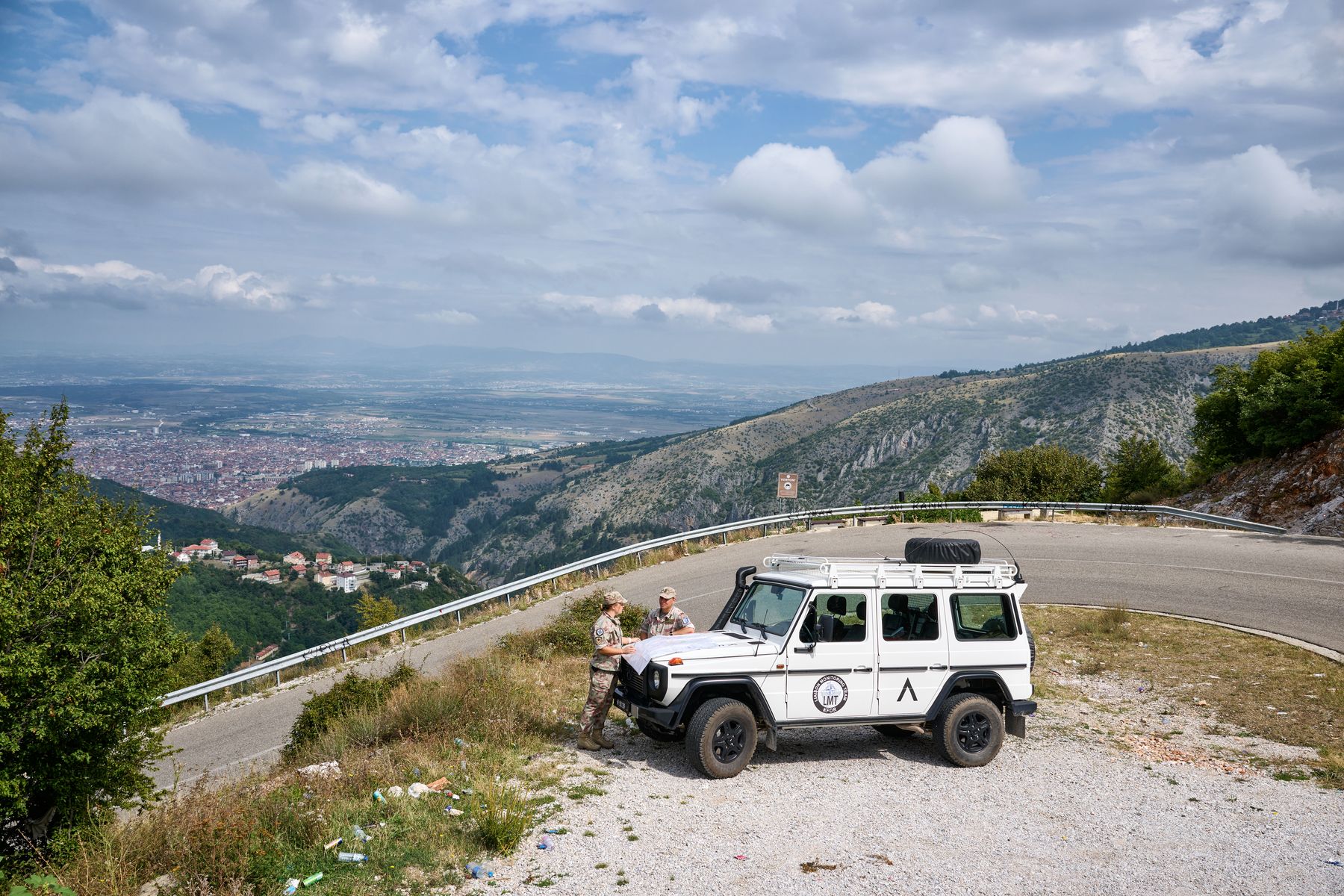
More
Swisscoy: How Swiss participation in Kosovo peace mission lays bare the neutrality debate
Switzerland played an important role in Kosovo’s independence: in 2005, it was the first country to call for a discussion on Kosovo’s independence at the UN.
In favour of an independent Kosovo also because of the diaspora in Switzerland
The then Swiss Foreign Minister Micheline Calmy-Rey is now an honorary citizen of Kosovo. In an interview with SWI swissinfo.ch she explained that Switzerland also had its own interests in an independent Kosovo. One argument in favour of independence for Calmy-Rey was the large Kosovar community in Switzerland.
So a connection through the people in the population was established before the special relationship between Kosovo and Switzerland materialised politically.
All the Kosovo Albanians from Wil were there, Calmy-Rey says, recalling the day of the declaration of independence, which she happened to spend at an Albanian church service.
Kosovo has developed strongly since independence in 2008 – it is a very young society with well-educated people.
Swiss Abroad and Swiss call centres in Kosovo
Kosovo has also become a home of choice for Swiss nationals without a Kosovan background, such as the graffiti artist Krissy Suire from western Switzerland, who has made a name for herself in both countries under the pseudonym “Made By Stern”. She describes her emigration to Kosovo as a “second birth”.
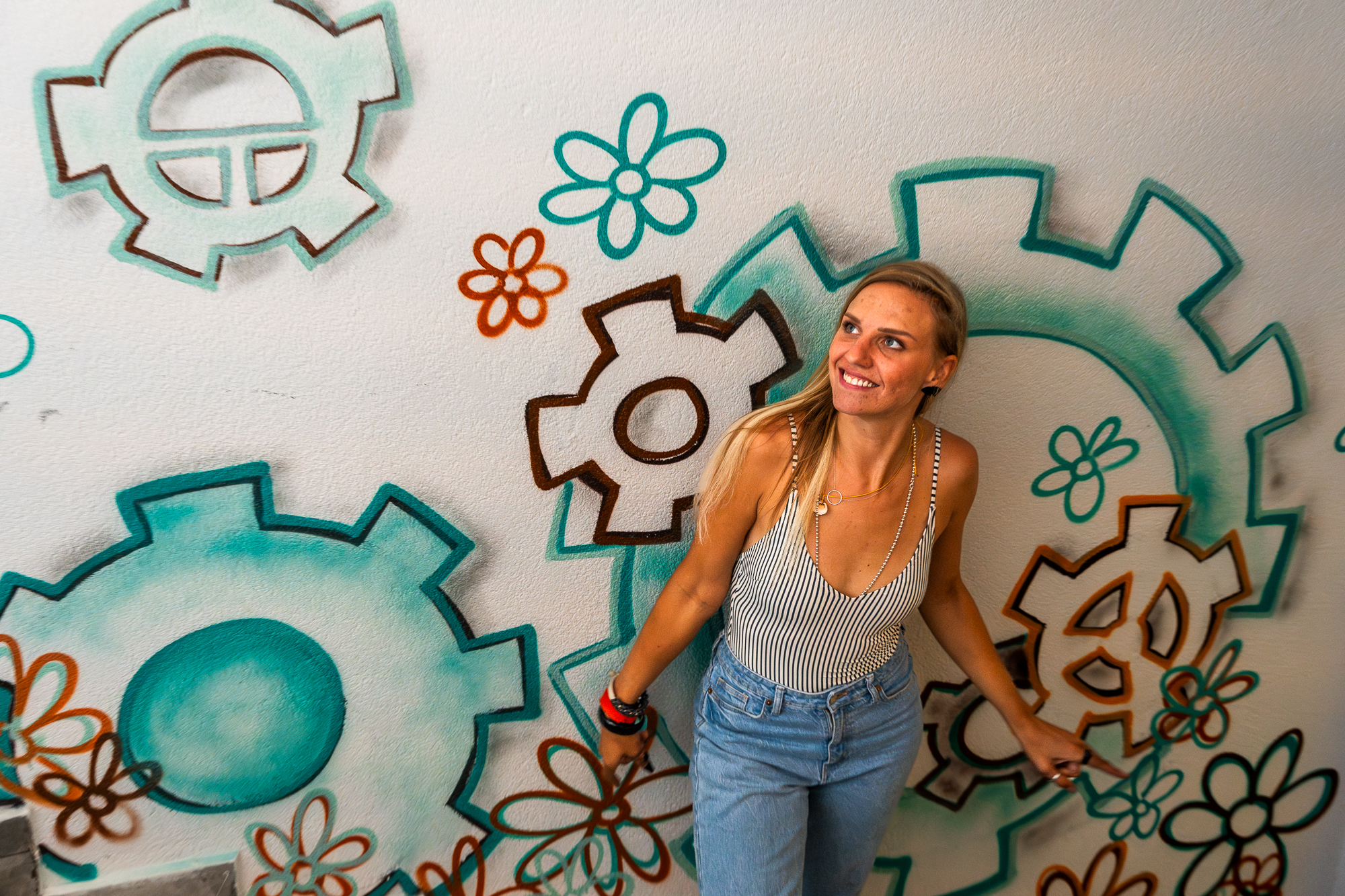
More
Swiss graffiti star finds home and renewal in Kosovo
The many personal connections – and the widespread knowledge of German that goes hand in hand with them – have ensured that there are also increasing economic contacts between the countries. For example, Swiss telecommunications companies have opened call centres in Pristina.
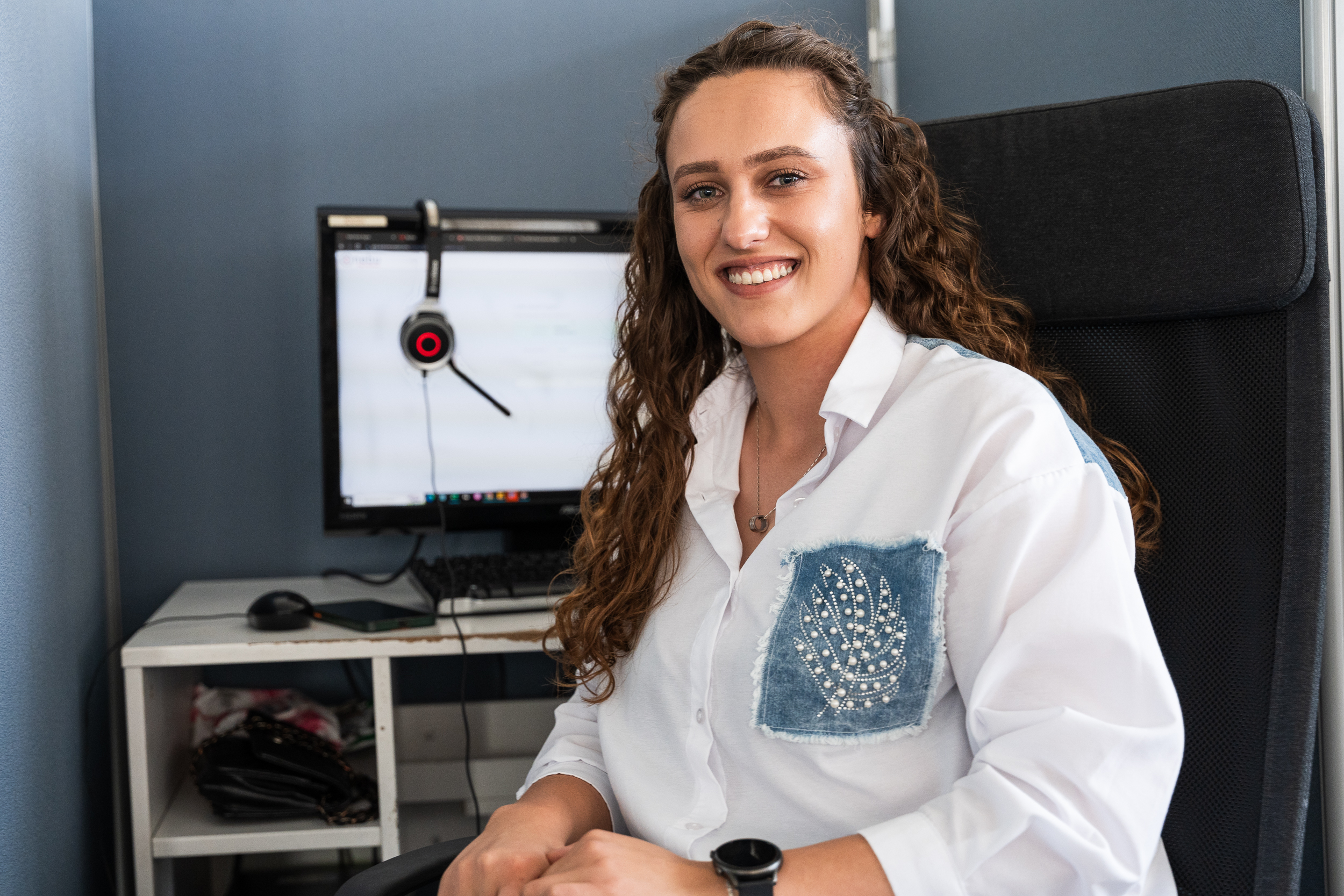
More
Taking the Swiss pulse – from Kosovo
SWI swissinfo.ch spoke to the call centre agents, who ask the Swiss about their positions on the pensions system or biodiversity, and in the process get to know Switzerland better and better, sometimes without ever having been to the Alpine country themselves.
The Swiss-Kosovars in sport and culture
The stars of the Swiss men’s national football team Xherdan Shaqiri and Granit Xhaka have their roots in Kosovo. Other sportsmen and women such as Naim Fejzaj, an athlete in the traditional sport of Swiss wrestling, also belong to the Kosovar diaspora in Switzerland.
Swiss-Kosovar filmmakers are part of a “Kosovar New Wave” in cinema.
In music, second-generation Kosovar EAZ, born Arber Rama, achieved a very Swiss record: his song “Juicy” was the first Swiss-German title to climb the charts in Germany in the last 50 years.

More
Swiss hip hop wows – with no mention of cows
In 2023 – 15 years after Kosovo’s declaration of independence, 25 years after the start of the war – Kosovo Swiss are an integral part of Swiss society.
They are part of the country that initiated the discussion about the independence of their homeland. Today, Kosovo is the youngest state in Europe.
Edited by David Eugster. Translated from German by DeepL/ts

In compliance with the JTI standards
More: SWI swissinfo.ch certified by the Journalism Trust Initiative

























